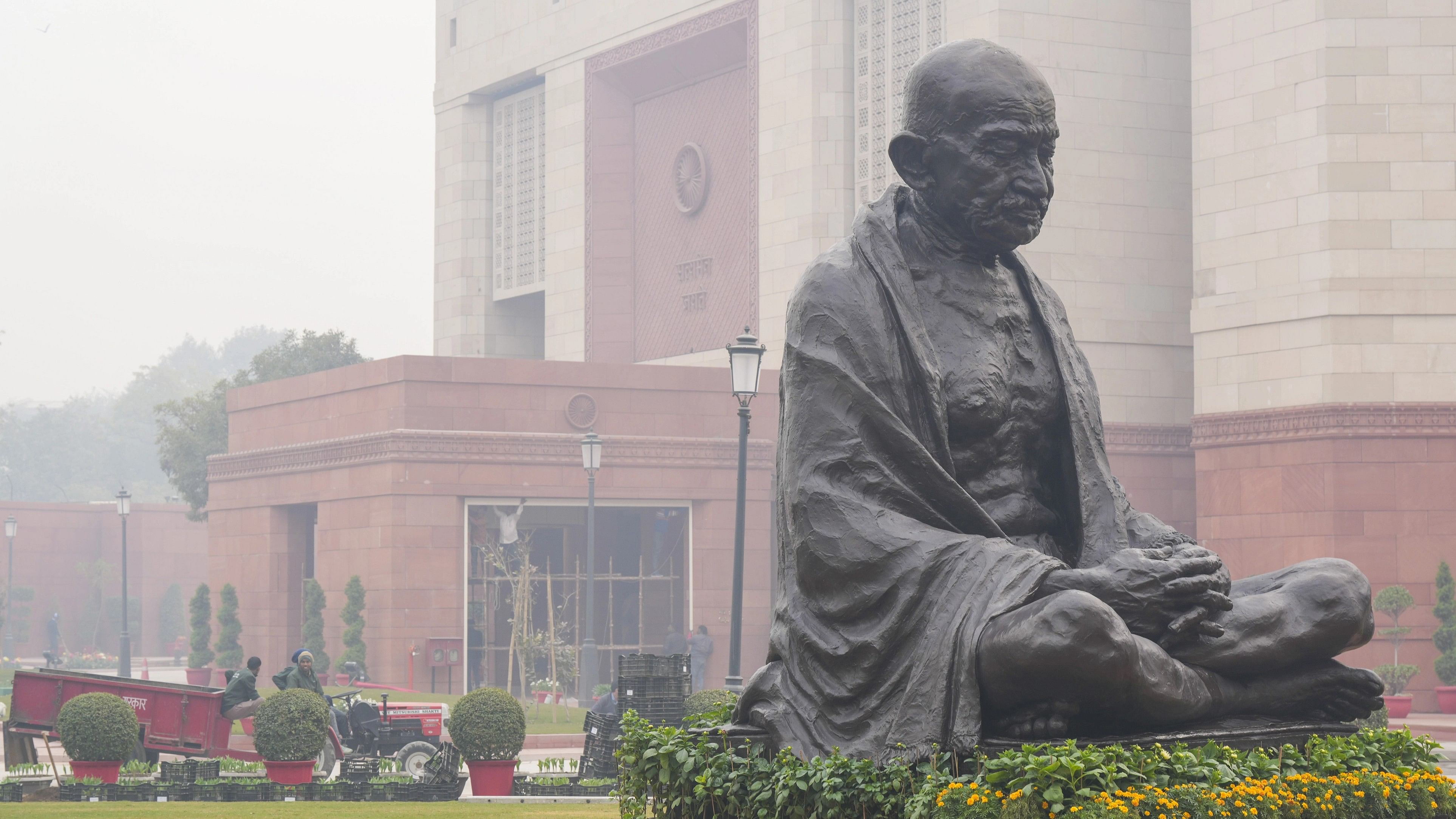
Mahatma Gandhi's statue at Parliament House complex.
Credit: PTI Photo
New Delhi: The Rajya Sabha on Tuesday passed a bill that seeks to decriminalise minor offences under the Water Act of 1974 and preparing the grounds for exempting certain categories of industries like the green ones from statutory clearances.
The Water (Prevention and Control) Amendment bill, 2024 was passed by the Upper House following a brief discussion with the Union Environment Minister Bhupender Yadav observing that the new law would be in the line of “ease of doing business”. The amount of penalty varies between Rs 10,000 and Rs 15 lakh.
The Union Environment Ministry plans to do away with criminal prosecution of minor offences under four green laws for better and faster compliance. The laws undergoing modifications are Environment Protection Act, 1986; Water Act of 1974; Air Act of 1981; and Public Liability Insurance Act of 1991.
The amendments to three of the four laws were passed as a part of the Jan Vishwas bill of 2023 that amended 183 provisions in 42 central laws, decriminalising minor offences. But a separate legislation to amend the water act is needed since water is a state subject.
Responding to the debate, Yadav said the penalties collected would be deposited in a corpus named Environment Protection Fund and 75% of the money would be shared with the states. The rules on fund distribution will be made later.
According to the bill’s statement of objects and reasons, the bill proposes to rationalise criminal provisions and ensure that citizens, businesses and companies operate without fear of imprisonment for minor, technical or procedural defaults. The nature of penalty will commensurate with the seriousness of offence, it added.
The bill also seeks to streamline the appointment of chairpersons of State Pollution Control Boards and allow the central government to prescribe the manner of nomination as well as the terms and conditions of service. This amendment will provide certain mandatory qualifications, experience and procedure to ensure fair appointment of chairpersons.
